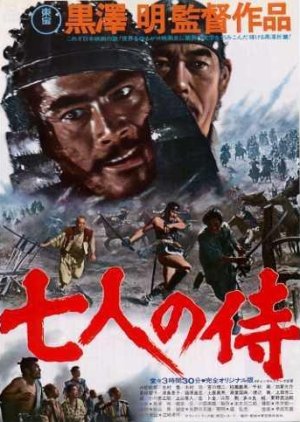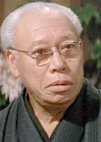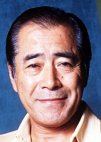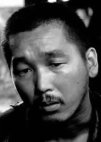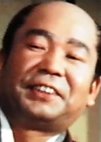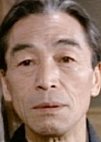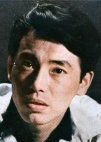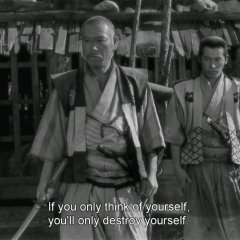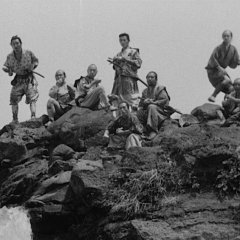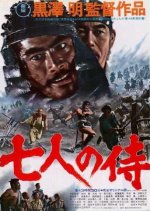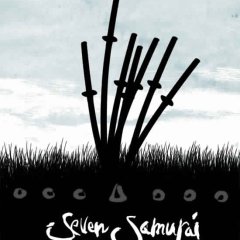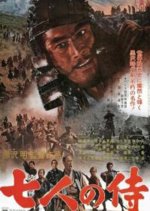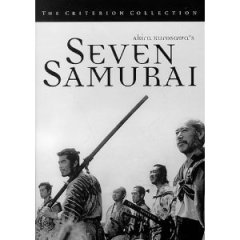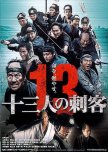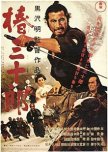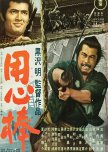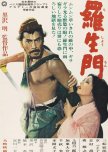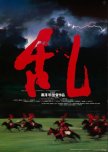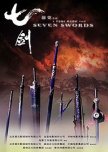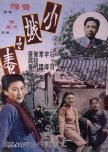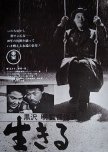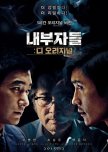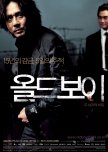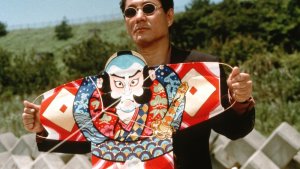 Takeshi Kitano Is Gearing Up to Direct His Final Film "Kubi"
Takeshi Kitano Is Gearing Up to Direct His Final Film "Kubi" - Nederlands
- 中文(台灣)
- Čeština
- Español
- Oorspronkelijke titel: 七人の侍
- Ook gekend als: Shichinin no samurai
- Scenarioschrijver & regisseur: Kurosawa Akira
- Scenarioschrijver: Oguni Hideo, Hashimoto Shinobu
- Genres: Actie, Avontuur, Historisch, Drama
Cast & Credits
- Shimura Takashi Hoofdrol
- Mifune Toshiro Hoofdrol
- Chiaki Minoru Hoofdrol
- Inaba Yoshio Hoofdrol
- Miyaguchi Seiji Hoofdrol
- Kimura Isao Hoofdrol
beoordelingen

The movie takes place near the end of the Sengoku era; possibly the Azuchi-Momoyama period. Due to political unrest and military wars, there are plenty of ronin samurai roaming about, but there are also bandits. The latter terrorize local villages; simple farmers are robbed of their meager possessions, their harvest and their women. Undoubtedly, the farmers are forced to make a decision; they can either allow things to continue as is or... make a stand to fight and defend what is theirs. The villagers choose to fight back, but they are farmers, not warriors. They have no training in weaponry and they lack the necessary skills for battle. Therefore, they come up with a plan to hire ronin samurai to aid them in their fight to be free of oppression.
But, what does an impoverished village have to offer? Practically nothing, except the rice they have nurtured and grown all winter. Thus... their quest begins. A quest to find hungry samurai who will work for three square meals a day, instead of money.
Ultimately, the villagers are left feeling despondent, as their primary efforts appear futile. However, eventually they are able to procure five highly skilled samurai and two promising hopefuls.
I enjoyed each samurai character. Separate entities, different personalties and each had their own personal reasons for aiding the farmers. I, however, felt those reasons were vague and not clearly expressed in the movie, yet it enabled the viewing audience to reflect and draw their own conclusions. The animated series of Samurai Seven, I feel evoked more feeling into its samurai characters than the screen version.
Throughout the film, I found myself drawn to each samurai, as well as sympathizing the plight of the villagers. How could one not respect the efforts of Kambei Shimada (portrayed by actor - Takashi Shimura). He was the first to accept the villagers offer and began overseeing the recruitment of more samurai to the cause.
The skilled swordsman, Kyuzo (actor - Seiji Miyaguchi); even though his dialogue was minimal, I found him equally impressive. His stoic, no-nonsense character was one to get the job done with no questions asked.
Of all the seven, none compared to Kikuchiyo (actor - Toshiro Mifune). To me, his performance stole the show. Kikuchiyo's passioned speeches chastised both the samurai and the farmers, but it opened the door for acknowledgement of their differences and brought about an understanding of the two separate classes. Mifune's comedic antics kept the dire situation from becoming too solemn, thus uplifting the villagers spirits, as well as, entertaining an audience.
This classic is enriched with meaning; it also portrays both the social and economic history of feudal Japan in grave detail. Ultimately, Samurai Seven is a film that will stand the test of time. If you haven't seen it, then I highly recommend that you do.
Vond je deze recentie nuttig?

"When you think you're safe is precisely when you're most vulnerable"
Seven Samurai is not just a movie about fighting samurai, this film calls out the injustices prevailed on the common people by the warring ruling classes and class delineations. Kurosawa’s 3 ½ hour film would appear to be too long, and truthfully on previous viewings, I felt that way. But this time having learned to be comfortable with his world and character building, I settled in and watched as he wove a complex story out of a simple one. Kurosawa is a master at teaching and rewarding patience.“You all make great scarecrows. Problem is, the enemy isn’t a bunch of sparrows and crows.”
A small village of peasants whose crops are routinely plundered by the local bandits make a desperate all-in decision. Rather than risk starving and losing their women to the thieves they determine to find samurai hungry enough to protect them for food but not so strong as to be a more dangerous alternative than the bandits. Kambei is recruited first after he rescues a small child from a thief. From there Kambei puts together a team of six willing samurai. A seventh “samurai” refuses to be dismissed and follows them anyway. Kikuchiyo will prove vitally important as a link to the farmers. Kambei develops a plan to protect the village from 40 bandits on horses and armed with muskets with only seven warriors and untrained villagers with bamboo spears. Though the odds are not in their favor this new team of uneasy allies does not back down.
“In life, one finds friends in the strangest places”
The story occurred in one of Kurosawa’s favorite settings, the Sengoku period during the 16th century. While the classes were separated, there was still miniscule room for movement. At the same time, there was a belief that poverty and suffering was the fate for peasants and many of the samurai interviewed refused to help them. There was no reward, no chance for glory or increased rank, no lord to serve. Only those who enjoyed battle or were hungry or had sympathy for the peasants were willing to join.
“Who turned the farmers into such monsters?”
Civil wars had been devastating for the peasants who always have the smallest of safety nets in any time period. For these farmers, the samurai were not much different than the bandits. In a key scene, brilliantly played by Mifune Toshiro, Kikuchiyo upbraided the six when they were horrified to discover armor the farmers had stolen or killed fleeing samurai for. He quickly put things in perspective. Samurai murdered, pillaged, raped, and burned just as the bandits did only under the guise of “honorable” warfare, the end was the same for the farmers. Inviting samurai into their village could be the same result as bringing a tiger to the front door to chase wolves out the back. Someone always coveted the valuable rice and barley the farmers grew. Powerless farmers were left with little to barter with except their women and their lives keeping them in a perpetual state of fear.
“By protecting others, you save yourself”
Samurai Heihachi designed a flag displaying the growing cooperation between the disparate groups. Kambei and Kikuchiyo along with the other samurai and lead peasants forged a transformation of societal boundaries. The two sides slowly learned to trust each other building something new and important. But would it last?
“There’s nothing heroic about selfishly grabbing for glory”
Kurosawa regular Shimura Takashi played Kambei Shimada, the leader of the samurai. This is by far my favorite role of his despite loving Ikiru. Shimura was calm, wise, wily, and also had a sense of humor. He owned every scene he was in and it was quite believable that he instilled confidence and commanded respect from both samurai and villager. His performance was brilliant as the leader who eschewed the need for glory and demanded complete selflessness. Another Kurosawa regular, Mifune Toshiro, and one of my favorite actors, played the slightly and sometimes not so slightly, unhinged Kikuchiyo. It was a role similar to the one he played in Rashomon. Overflowing with kinetic energy and emotion, he never stepped out of character, never reverted to the ultra-cool samurai he was capable of playing. Kimuro Isao as the youngest samurai, Katsushiro, displayed the awe of the men around him and the fear of first battle and first love. The other samurai were capably played and carefully developed as individual characters instead of bland backdrops. Even several peasants were highlighted.
“I defended my post”
Using his three-camera technique for the first time, Kurosawa blended the action to convey the tension of death and battle. His customary blowing dust skittered across the scenes as moods changed. While there was emotional music, his most successful background sounds for me were the beating drums of war approaching even as songbirds sang and flowers bloomed. As the rain fell during the final battle, it was hard to distinguish samurai from peasant. Side by side they fought viciously and heroically regardless of the consequences, regardless of rank, regardless of whether they or their alliance survived. Seven Samurai fought not only bandits but distrust and social injustice with only one side in the triangle of power capable of winning. If you can let Kurosawa slowly envelope you in this world he created with good and evil and every shade of gray in between you’ll be rewarded with a captivating film superbly made.
27 March 2024
Vond je deze recentie nuttig?

